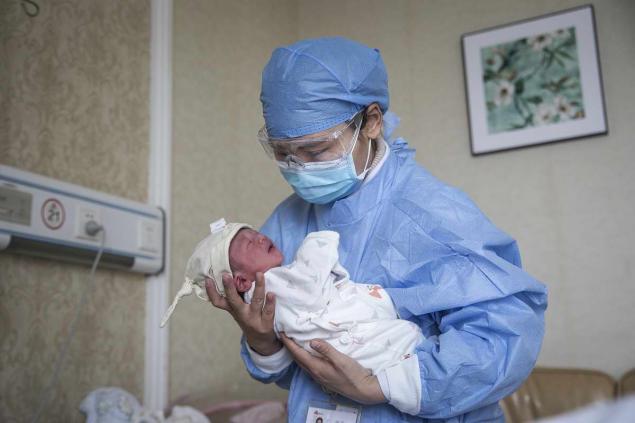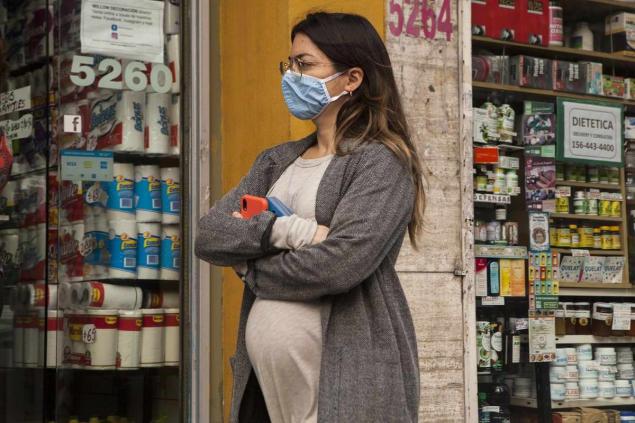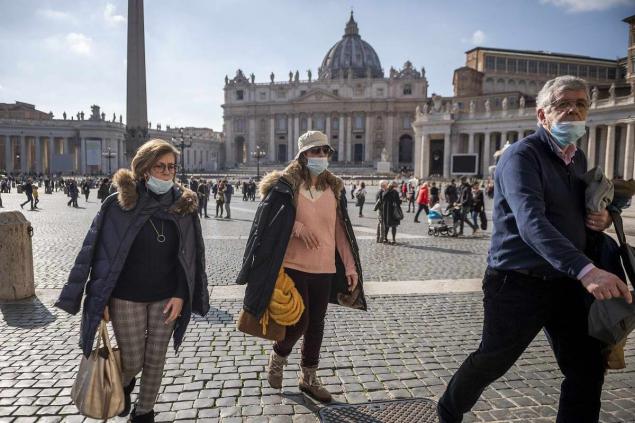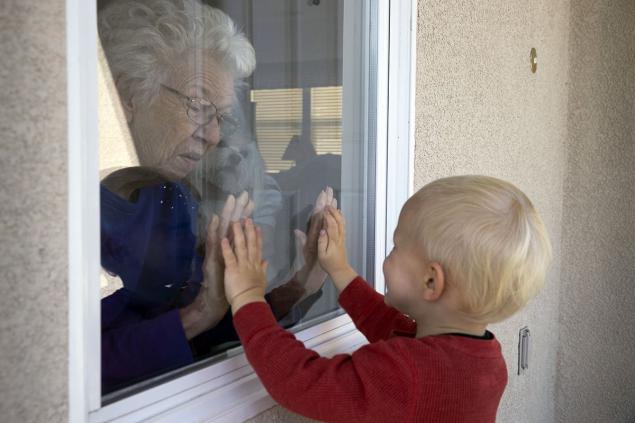135
Why didn’t there be a baby boom after the lockdown?
With the arrival of quarantine, many expected a baby boom. It would seem that what else during strict isolation to do in four walls? But in practice, only Netfli and Steam’s revenues have grown, and birth rates are plummeting. We explain the reason for this phenomenon, and how it can eventually hit our pockets.

Recently it became known that the birth rate in the United States is at the lowest level in the last 100 years. According to experts, by 2046 this will reduce the projected population by 10 million people.

GettyImages In Italy and Spain, the number of newborns fell by 20% as of the beginning of 2021, the lowest level in the history of statistics.

GettyImages About the unprecedented decline in the birth rate also declare the authorities of France, Korea, Taiwan, Estonia, Lithuania and Ukraine. And polls show that, for example, almost 50% of Italians planning to have a baby in 2020-2021 postponed the idea until “better times.”
Looking back at precedents, it is clear that fertility declines in one way or another during all world crises. And then they usually catch up pretty quickly. But this time it looks like it will be different.

GettyImages Many of those surveyed say they have no plans to have a baby for at least a few years. And some even abandoned this idea until the complete victory of medicine over the coronavirus.
Quarantine restrictions have left a serious imprint on the way of our lives. On the one hand, psychologists consider stress one of the factors that enhance sexual desire.

GettyImages On the other hand, the abundance of negative news and uncertainty of forecasts lead to increased anxiety, fear and panic. All this negatively affects relationships in couples in general and sexual life in particular.
There is no evidence of increased vulnerability of pregnant women to the virus. However, pregnancy weakens immunity. Against this background, the likelihood of suffering from other diseases increases. And accessing health care in an overburdened health care system becomes more difficult for women.

GettyImages should not forget about the decline in incomes of citizens. In most countries, the pandemic has already led to a recession and increased unemployment. Against this background, even those who have long dreamed of it do not dare to decide to have a child.
Someone will say, “Well, the birth rate has decreased.” What's the big deal? There will be 8 billion people on the planet soon! That's it. But the regions with high fertility – Africa, Latin America and Southeast Asia, this problem is almost not affected.

And already rapidly aging Europe, Japan and the United States felt it fully. Natural population growth here has long barely kept pace with mortality. The average life expectancy is constantly increasing. As a result, the share of workers is declining, and the percentage of pensioners is growing.
This demographic shift is slowing the economy, putting a heavy burden on health care, social protection and the pension system. The growing number of pensioners requires additional resources. At the same time, the number of employees, and therefore the amount of taxes collected, is constantly decreasing.
As a result, governments have to reduce the size of pensions or increase the retirement age. Both options are unlikely to please anyone. This is certainly incommensurable with the grief of losing loved ones. But it is also part of the price we will have to pay for the coronavirus epidemic.
The article and the preview used photos.

Recently it became known that the birth rate in the United States is at the lowest level in the last 100 years. According to experts, by 2046 this will reduce the projected population by 10 million people.

GettyImages In Italy and Spain, the number of newborns fell by 20% as of the beginning of 2021, the lowest level in the history of statistics.

GettyImages About the unprecedented decline in the birth rate also declare the authorities of France, Korea, Taiwan, Estonia, Lithuania and Ukraine. And polls show that, for example, almost 50% of Italians planning to have a baby in 2020-2021 postponed the idea until “better times.”
Looking back at precedents, it is clear that fertility declines in one way or another during all world crises. And then they usually catch up pretty quickly. But this time it looks like it will be different.

GettyImages Many of those surveyed say they have no plans to have a baby for at least a few years. And some even abandoned this idea until the complete victory of medicine over the coronavirus.
Quarantine restrictions have left a serious imprint on the way of our lives. On the one hand, psychologists consider stress one of the factors that enhance sexual desire.

GettyImages On the other hand, the abundance of negative news and uncertainty of forecasts lead to increased anxiety, fear and panic. All this negatively affects relationships in couples in general and sexual life in particular.
There is no evidence of increased vulnerability of pregnant women to the virus. However, pregnancy weakens immunity. Against this background, the likelihood of suffering from other diseases increases. And accessing health care in an overburdened health care system becomes more difficult for women.

GettyImages should not forget about the decline in incomes of citizens. In most countries, the pandemic has already led to a recession and increased unemployment. Against this background, even those who have long dreamed of it do not dare to decide to have a child.
Someone will say, “Well, the birth rate has decreased.” What's the big deal? There will be 8 billion people on the planet soon! That's it. But the regions with high fertility – Africa, Latin America and Southeast Asia, this problem is almost not affected.

And already rapidly aging Europe, Japan and the United States felt it fully. Natural population growth here has long barely kept pace with mortality. The average life expectancy is constantly increasing. As a result, the share of workers is declining, and the percentage of pensioners is growing.
This demographic shift is slowing the economy, putting a heavy burden on health care, social protection and the pension system. The growing number of pensioners requires additional resources. At the same time, the number of employees, and therefore the amount of taxes collected, is constantly decreasing.
As a result, governments have to reduce the size of pensions or increase the retirement age. Both options are unlikely to please anyone. This is certainly incommensurable with the grief of losing loved ones. But it is also part of the price we will have to pay for the coronavirus epidemic.
The article and the preview used photos.
Why lazy doves from young cabbage break
The third year baking elegant cruffins for Easter, it turns home natural "Panetton"























